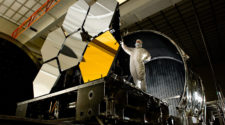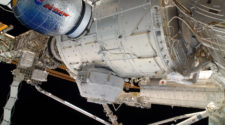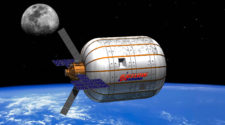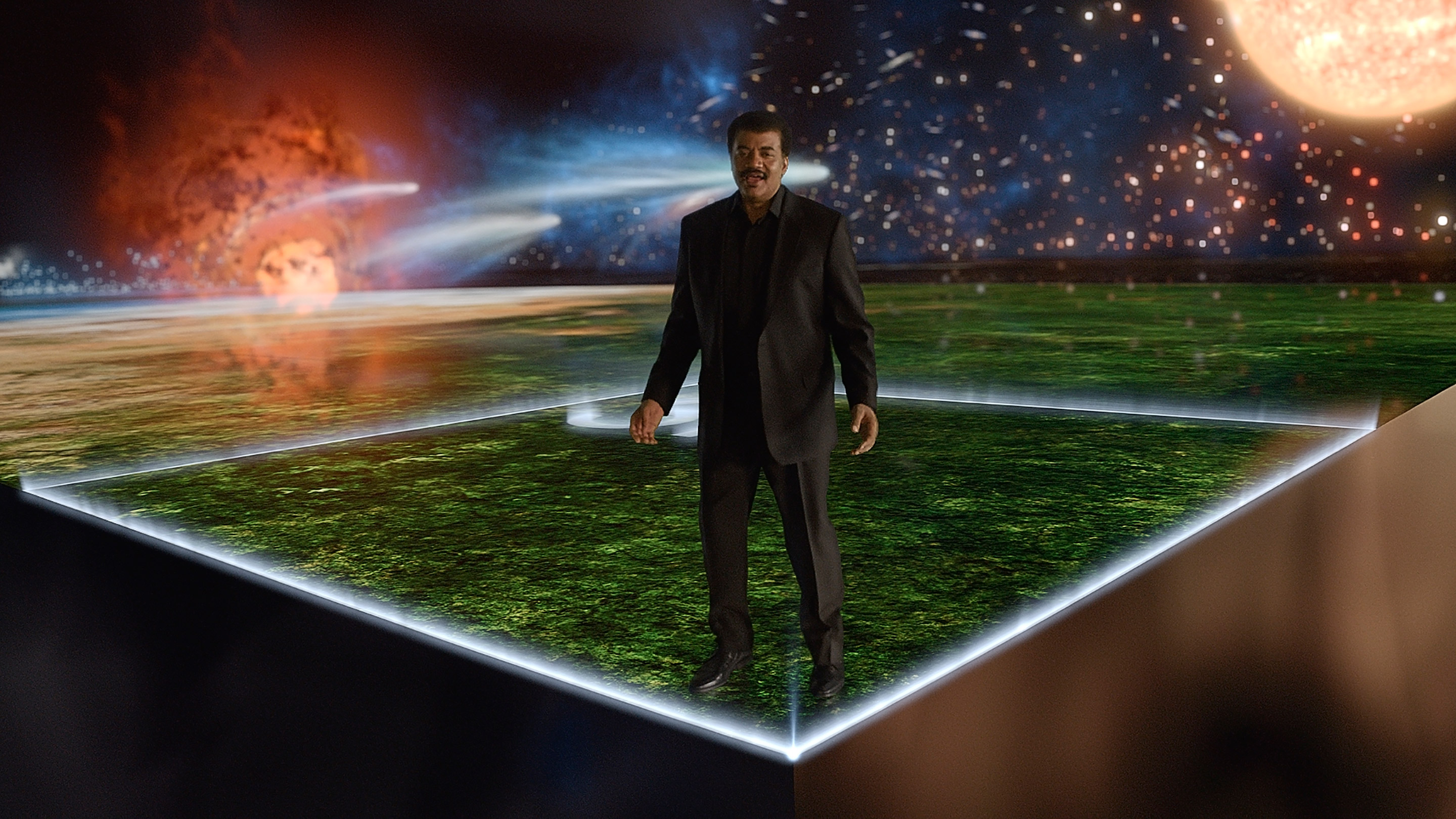
The pursuit of knowledge is just half the odyssey of a scientist. Being able to communicate that knowledge to a broader audience is the other half. Few, if any, excel better at the second part of the equation than the famed astrophysicist Neil deGrasse Tyson. It is little wonder then that he was chosen to be the host of the newest chapter of the “Cosmos” universe on television.
Even though he was in the midst of a worldwide publicity tour for the show, he made himself available to answer questions for RocketSTEM. Not one to waste the chance to connect our readers with such an esteemed scientist, we opened up the floodgates to let our readers submit their own questions. In less than 24 hours we were deluged with responses. In a contentious discussion comparable to picking Time’s Person of the Year, we winnowed the list down to the best questions. And without further ado, here are his responses…
Q: In the past you’ve stated that the universe called you while you were still in high school to become a scientist. For those students who have no interest in becoming a scientist or an engineer, how do we impart on them the value of still studying STEM subjects no matter what their career choice is?
Tyson: I was called by the universe at age 9. Long before high school. In spite of this, I claim no special solutions to the nation’s educational woes, but I can assert without hesitation that people want to learn when flames of curiosity are lit within them. They become self-driven, taking ownership of their educational trajectory. We’ve all had teachers in our lives who did just that for us, but their numbers are typically countable on one hand. I count them as the first candidates for the walk-in cloning machine.
Q: What does a ‘Eureka’ or ‘Aha!’ moment feel like for you?
Tyson: Most scientific discovery, as Isaac Asimov perceptively noted, arise when, in response to new data, a scientists says, “That’s odd”. To utter the word Eureka implies that you found exactly what you were looking for, and that it happens in an instant. Most (nearly all) science does not unfold that way. Instead it’s the long and slow analysis of data, extracting what you judge to be believable signals out of experimental noise. The real feeling worth describing is the act of obtaining the data – data that you know that nobody has obtained before. That’s a state of unmatched anticipation and joy.
Q: What was the most rewarding part of doing the new “Cosmos”, and why was it important to you to add another chapter to the storied legacy of the original “Cosmos”?
Tyson: I don’t think of projects such as “Cosmos” as being rewarding to me. That’s not the source of my motivation. I participated as a servant of the public’s interest in the universe and as a conduit for those who did not know they could be interested in science, and for those who were sure they were not interested in science at all. If “Cosmos” succeeds, then the rewards are to society, who desperately needs – whether it knows it or not – a dose of science literacy to become better shepherds of our future on Earth.
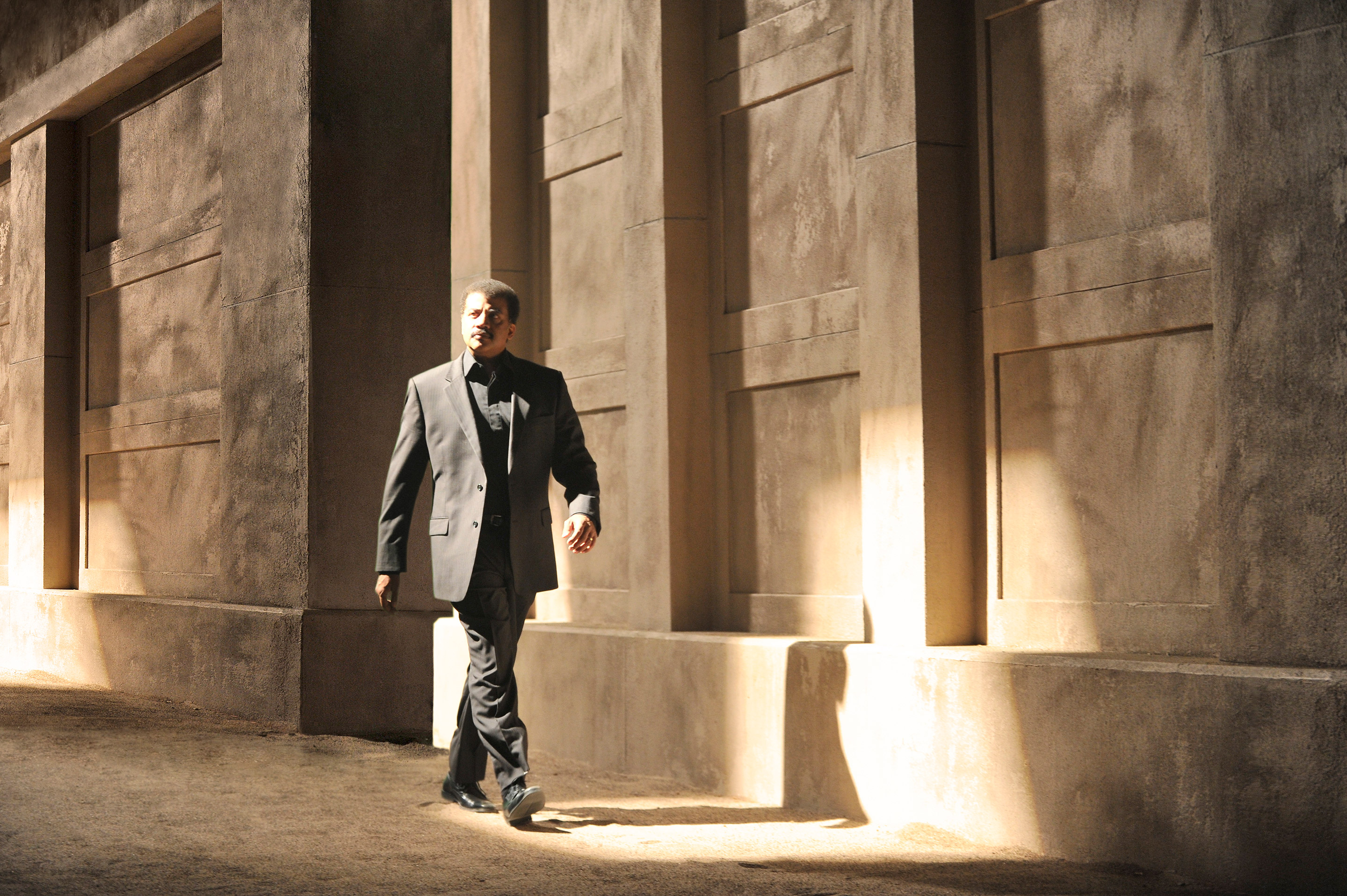
Q: Concerning the conservation of mass: if the universe came from nothing, does that break that rule, or is it because in theory the universe was not a closed system yet? And is it now?
Tyson: We don’t know where the universe came from. Recent research shows that if the net energy of the universe is zero (adding together all sources of positive and negative energy) then there’s no problem creating a universe from nothing. (Energy and mass are equivalent, via E=mc^2 ) so I’ve simply restated the question in terms of energy.) But why this universe? And why 13.8 billion years ago? These questions live on the cosmological frontier.
Q: How do we know that there is a black hole – Sagittarius A* – at the center of the Milky Way galaxy, and why should we feel safe that it poses no threat to our own solar system?
Tyson: The rapid movement of stars very near the galactic center gives us a measure of how much mass is there, and the volume of space it must occupy. Combining these two numbers, you get a black hole. In the case of Sagittarius A*, a supermassive black hole. The observations are hard, but the calculation is relatively easy. Black holes are not giant sucking machines. They do eat anything that wanders too close, but if you’re on a stable galactic orbit far away from the beast, then you are safe.
Q: What, in your opinion, is the probability of life existing on Europa?
Tyson: 50:50
Q: If not on Europa, then where do you think we are most likely to first find evidence of life beyond Earth?
Tyson: Aquifers of Mars.
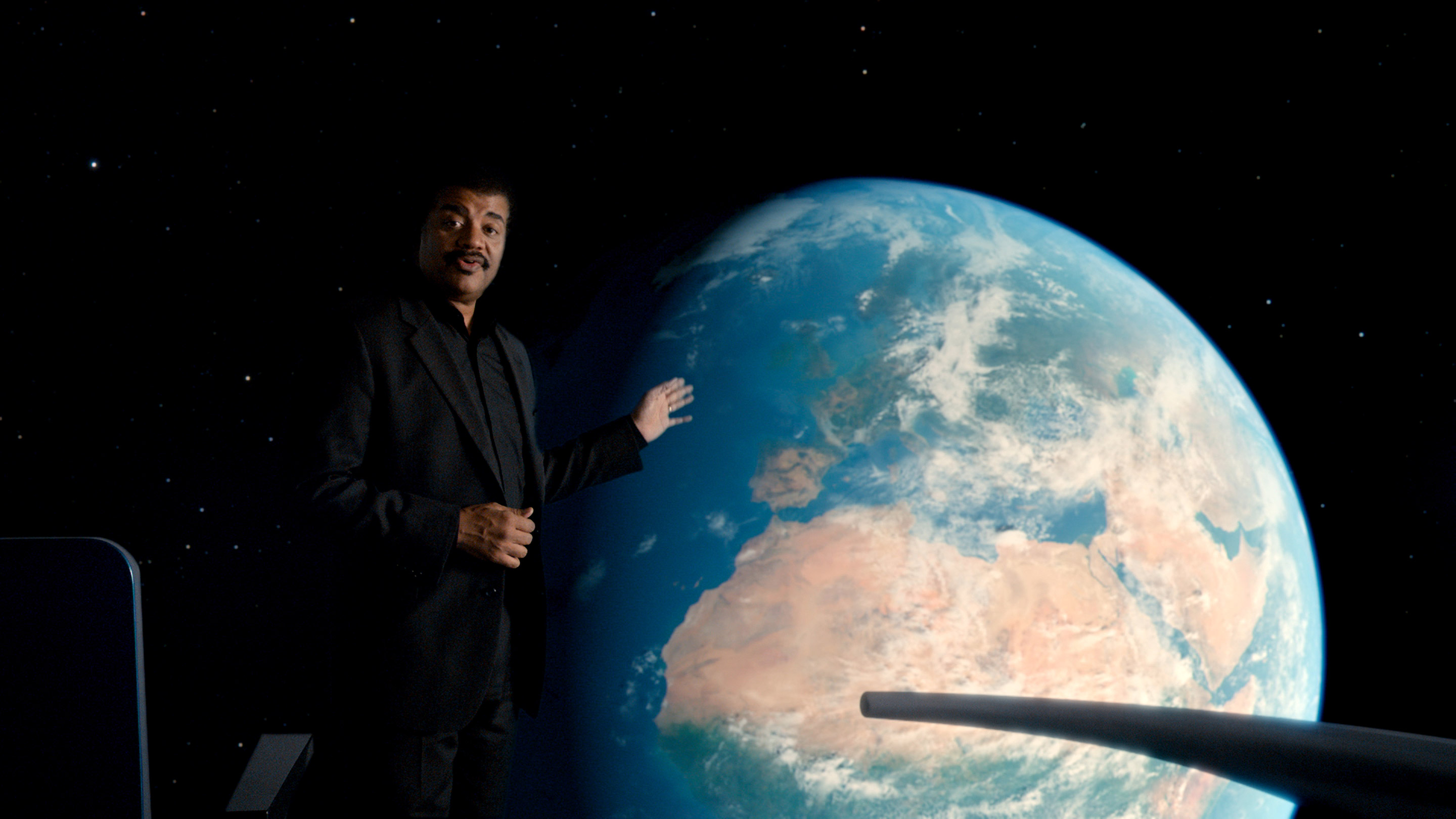
Q: What is your favorite scientific word, and why?
Tyson: syzygy When written in script, all letters but one drop below the line. The word refers to three or more cosmic objects in mutual orbit, find themselves in a straight line.
Q: Which is more of a threat to the long term survival of mankind – hostile aliens invading Earth or artificially-intelligent robots turning on humanity?
Tyson: Asteroid impacts disrupting civilization. Human induced climate change disrupting civilization. Airborne virus with a long incubation period. (These are all bigger threats to humanity.) It’s hubris to believe that we would be of any interest to alien invaders. Any alien with technologies capable of visiting Earth from across the galaxy, upon observing the conduct of humans, will surely conclude that there’s no sign of intelligent life on Earth, and go elsewhere. If we build artificially intelligent robots, I’d instead turn to them for advice on how to run a better world.
Q: If we had a space telescope powerful enough to see 13.8 billion light-years away, would we be seeing the light coming from the moment of the Big Bang itself, or is this light forever unobservable?
Tyson: Any light from the big bang comes to us from about a half-billion years after the explosion, when the glow became transparent to light. To see farther back in time we cannot use telescopes that require light. The frontier of this effort is now in gravity wave and neutrino telescopes. These can penetrate the haze of light, taking us back to the first fractions of a second of time.
Q: If you could take a trip into space on any fictional or nonfictional spaceship, which would you choose, and why?
Tyson: The Ship of the Imagination. As featured in “Cosmos: A SpaceTime Odyssey” When you see it, you will know why.
Q: With an entire universe of knowledge to cover in just 13 hours, was there any specific subject you were not able to address in the new Cosmos? Or one where you would have liked to devote even more time explaining it than you did, but just weren’t able to do so?
Tyson: We are not targeting all of cosmic knowledge, we instead explore how selected cosmic knowledge, obtained via the methods and tools of science, can foster a cosmic perspective, which, by many measures needs to be the centerpiece of wisdom for the 21st century.
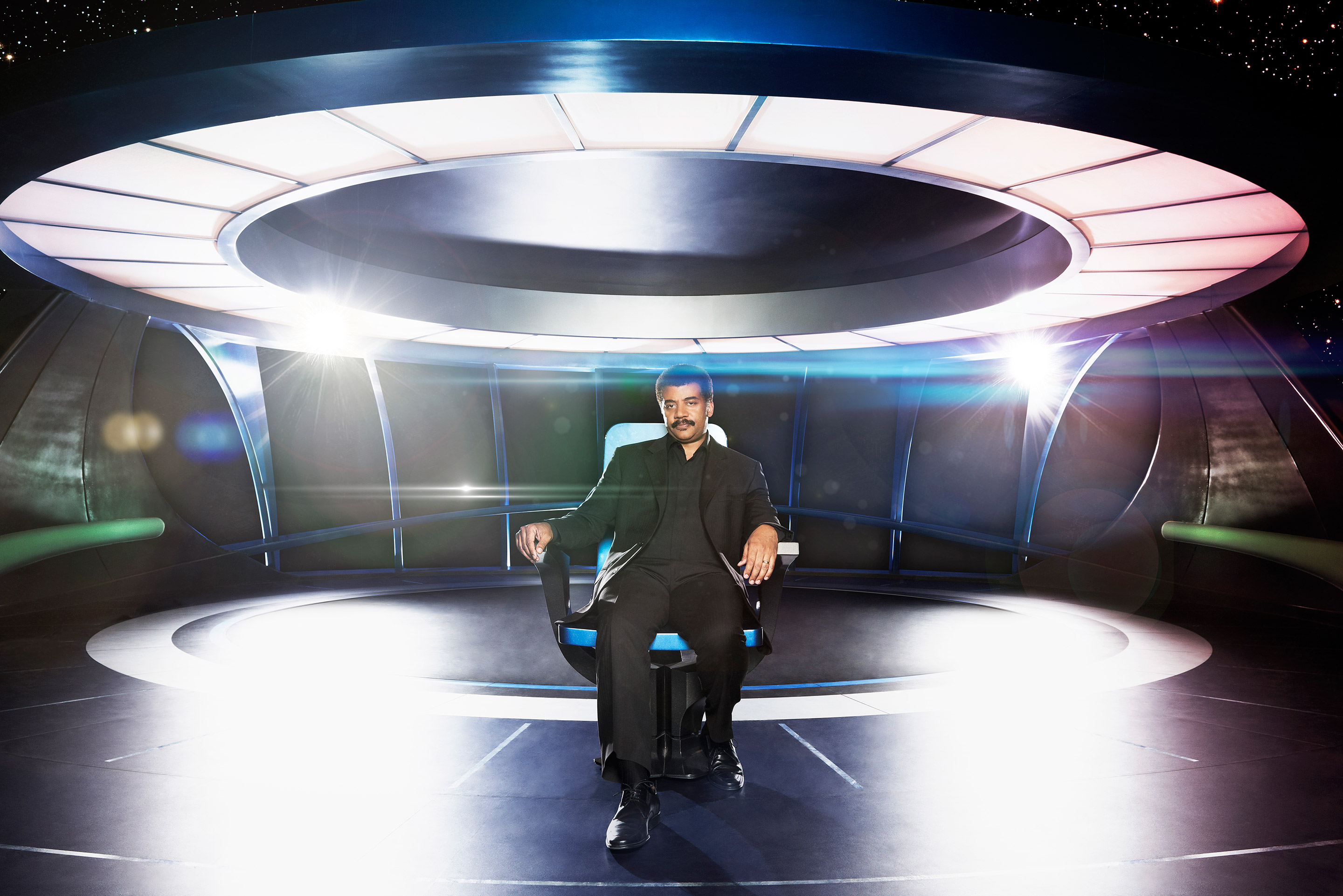
Q: If you were to take a long journey into space, and weight and space were not a concern, what personal items would you desire to bring with you?
Tyson: Nothing comes to mind. I’m not particularly laden with personal items.
Q: You are given dictatorial control of the U.S. for one day. What is the first decree/policy you make to benefit the advancement of science in the United States?
Tyson: 10% of the federal budget each year should be invested in R&D – the kind that brings returns on investment across time periods longer than what can be expected for Corporate investment R&D. Five years, ten years, twenty years, fifty years. And in that investment, we would create a suite of launch vehicles suitable for any task in space that we have or can imagine, be it touristic, military, scientific, or otherwise commercial. Be it the Moon, Mars, asteroids, comets, outer planets, or libration points in space. That would transform the country and ultimately the world.
Q: As a kid, what scientific depiction or invention from sci-fi movies or television did you most want to have become real?
Tyson: Seen in the original Star Trek series – doors that automatically open when you approach them, and close when you walk away. Something ubiquitous today, but unimagined for most of the history of doors. Beyond that, warp drives. I, too, want to be able to cross the Galaxy during a TV commercial.
Q: How can gravity cause galactic collisions when the universe is constantly stretching them away from each other?
Tyson: Some galaxies – those that are closest to one another – tend to be gravitationally bound. The expanding universe has no effect on them. Over the eons, they will ultimately collide, coalescing into one giant mass of stars and gas. We (Milky Way denizens) are on just such a collision course with the Andromeda galaxy.
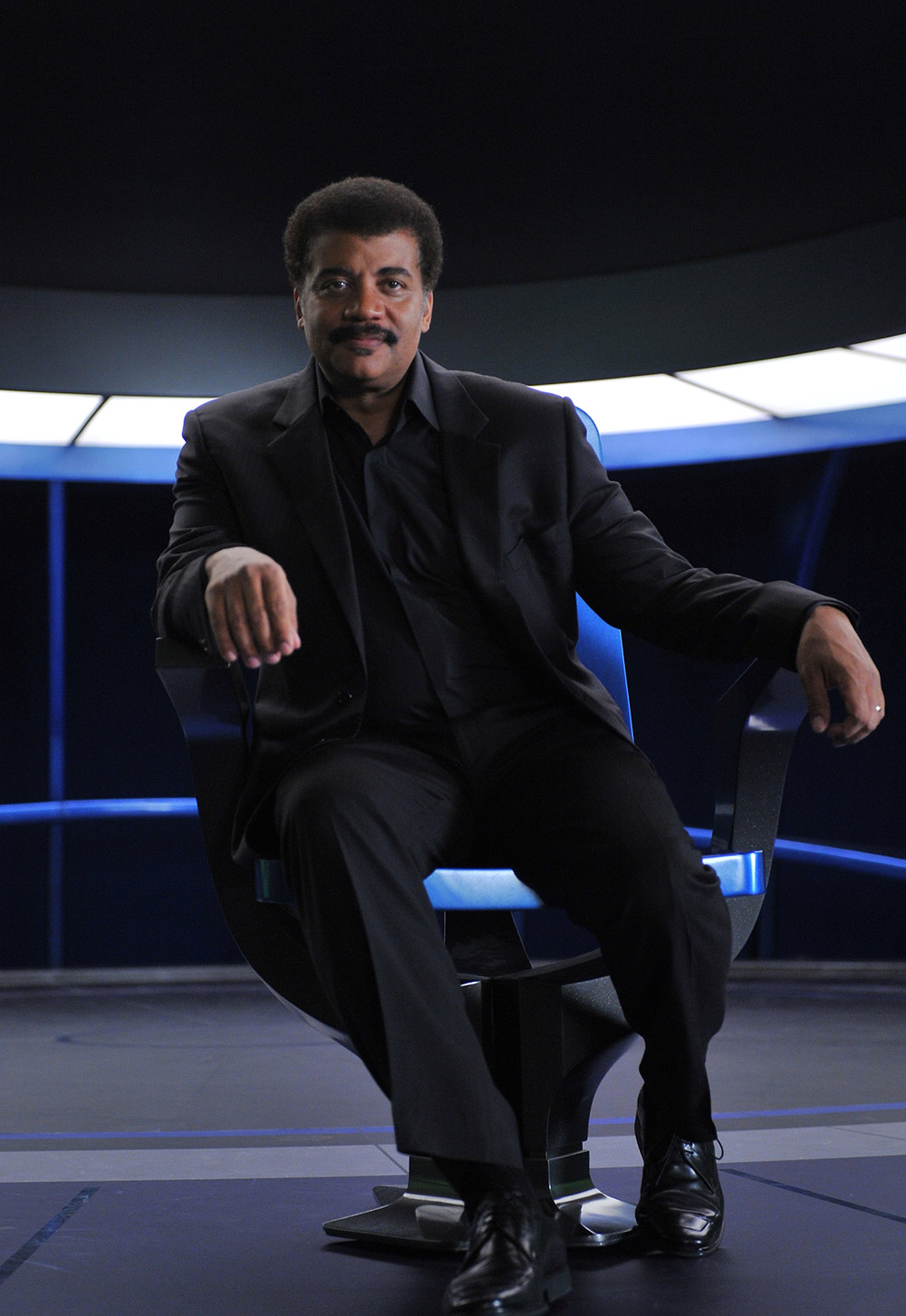
Q: Why is there a growing consensus that there was something before the Big Bang, and what are some of the theories of what ‘that’ was?
Tyson: Quantum physics – the most successful theory of the universe there ever was – when combined with general relativity, offers compelling arguments for why our universe may be one of many, each with slightly different laws of physics from one another. This admits a multiverse that preceds the universe itself.
Q: Is time tangible? Why?
Tyson: If, by tangible, you mean that you can touch it, then no. But neither is space. They are coordinates of our lives.
Q: Are we as a species ready to send humans to live on Mars as a colony, never to return to Earth?
Tyson: No. Such a colony would be a habitat module, mimicking earth air, and providing a supply of water and food. If that’s how you are going to do it, why not stay on Earth? Like taking a luxury Winnebago with satellite TV, a bathroom, and a kitchen on a camping trip. You are not camping. The colonists who came to the new world did so, in part, to escape persecution. And they discovered, upon arriving, that you can breath the air, and eat the fruit, and use wood from the trees to make homes. A one-way trip to Mars has no such amenities. Consider also that Antarctica is wetter and balmier than the Martian surface, yet nobody is lining up to build condominiums there. The takeaway here is that people live and work among us who want to take such a one-way trip. And I will always applaud ambition.
Please be sure to check out the rest of our “Cosmos” coverage, as well as share our content with your friends and family. Let’s make “Cosmos: A Spacetime Odyssey” a worldwide phenomena..
- Cosmos receiving largest ever global TV launch
(FOX and National Geographic Channel will be premiering the show in 180 countries.) - Ann Druyan preserves the legacy of Sagan’s “Cosmos” with “A Spacetime Odyssey”
(Another exclusive perspective from the show’s research coordinator.) - Neil deGrasse Tyson is a conduit to knowledge
(Exclusive article on what it was like to work alongside him on “Cosmos.”) - Summaries of all 13 episodes of “Cosmos: A Spacetime Odyssey”
(We’ll give you a peek at the descriptions for each episode before it airs. Prepare to be amazed.)

